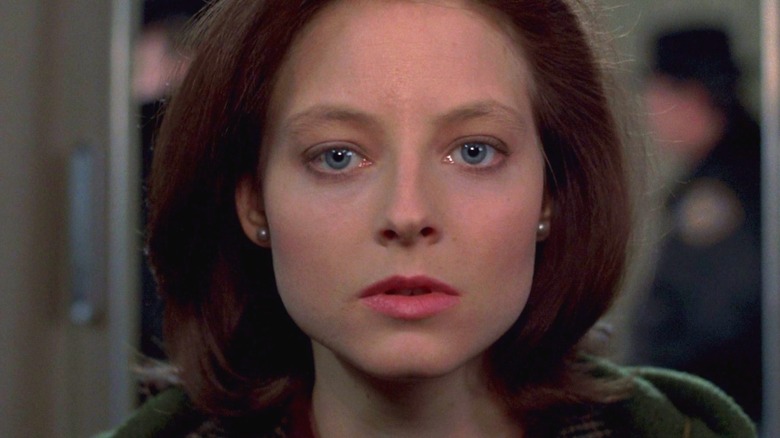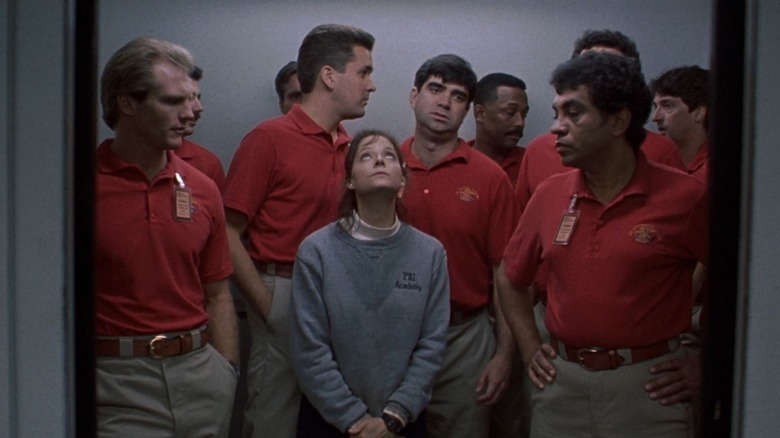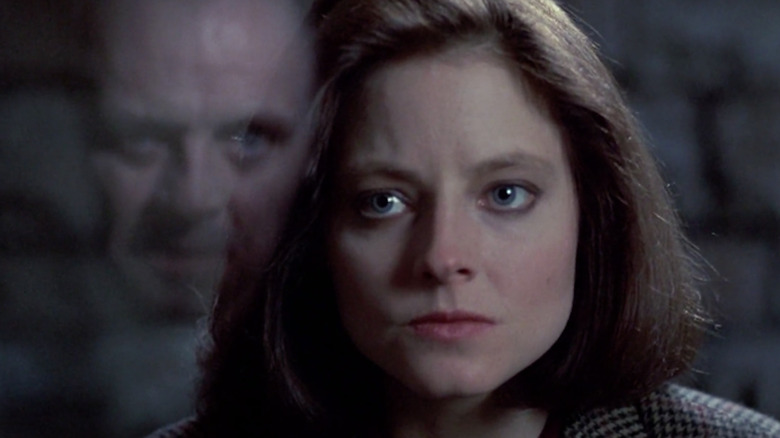Jodie Foster Had One Big Condition To Star In Silence Of The Lambs
Finding the right actor to play Federal Bureau of Investigation (FBI) trainee Clarice Starling in the 1991 film "The Silence of the Lambs" was always going to be a challenge. Directed by Jonathan Demme and based on the Thomas Harris novel of the same name, "The Silence of the Lambs" was a disturbing story about serial killer Hannibal Lecter (Anthony Hopkins) helping the FBI to hunt another serial killer on the loose called "Buffalo Bill" (Ted Levine). Initially Demme approached Michelle Pfeiffer to play Clarice, as she had starred in his film "Married to the Mob," but she turned it down because she felt the movie was, as a whole, too "evil."
Enter Jodie Foster, an incredible performer who knew a thing or two about starring in difficult roles, having portrayed a teenage sex worker in Martin Scorsese's "Taxi Driver" when she was only 12 years old. Foster could definitely handle the complexity of the role and the disturbing content, but she had one big demand of Demme: The FBI had to be portrayed in a realistic but positive light. Foster had some pretty intense real-life experience with the FBI when they helped protect her from a violent stalker, and she wanted to make sure they were represented correctly.
The FBI's depiction in The Silence of the Lambs was important to Foster
Foster had the horrible fortune to have two dangerous stalkers, both allegedly obsessed with her because of her performance in "Taxi Driver." The first was John Hinckley Jr., who wrote Foster creepy letters and later attempted to assassinate then-President Ronald Reagan in 1981. The second was Edward Richardson, who carried on Hinkley's desires to kill Reagan. Since the FBI had helped a young Foster deal with these terrifying circumstances and Demme had previously portrayed the FBI as oafish in "Married to the Mob," she wanted to ensure more care was taken. According to a 1991 feature published by Empire, Foster told Demme:
"I know I don't need to say this to you, but I just need to say in all responsibility to women being victimized all around the world that you can't portray those FBI people as goofy Republicans. If you want me to be your hero, you've got to portray them in the correct way."
That's honestly pretty fair, and while "The Silence of the Lambs" is definitely critical of the FBI at times, especially with regards to how Starling is treated as a young female agent, the organization is otherwise presented as generally heroic throughout. Similarly, even though the film stirred up controversy for extremely valid reasons, Foster's deeply nuanced performance is one of the strongest parts of "The Silence of the Lambs." She even wound up taking home a Best Actress Oscar for her work on the movie, so it's a darn good thing that Demme agreed to her need for the FBI to not be excessively vilified or mocked.
Foster's real experience probably helped her performance
As the young but already steely Starling, Foster is phenomenal. She even holds her own during terrifying stare-downs with Hopkins at his most horrific and eerily humane in "The Silence of the Lambs," demonstrating impressive physical and emotional control. Her expressions are layered and she shows us a tremendous amount about what Clarice is thinking or feeling with just her face and posture. Foster has spoken about how being stalked impacted her and how she felt "the show must go on," literally and metaphorically, so she kept performing and stayed in the spotlight. There's definitely a connection between the FBI upstart she played and Foster herself, as both have endured real terror and kept on keeping on.
What else is there to say? Foster is one of the greatest actors of all time, and "The Silence of the Lambs" is one of her finest showcases. Hopkins may have been perfectly creepy, but Foster showed vulnerability and strength, making Clarice a feminist hero for the ages ... at least until the sequel, "Hannibal."


